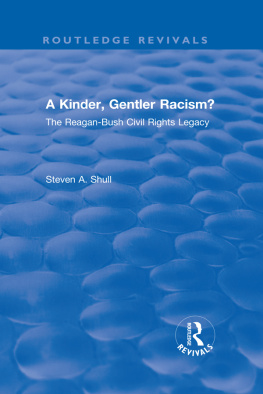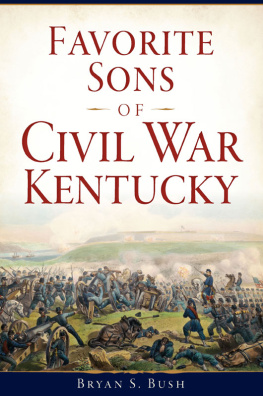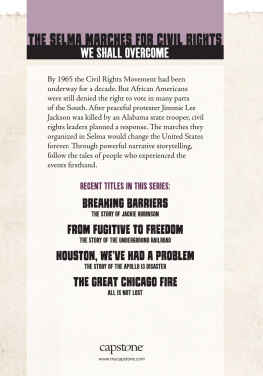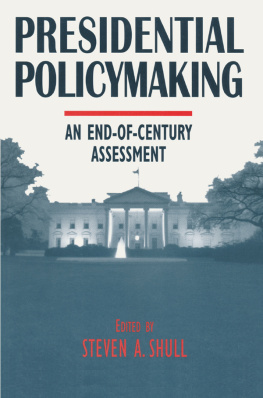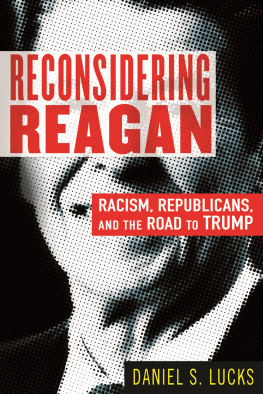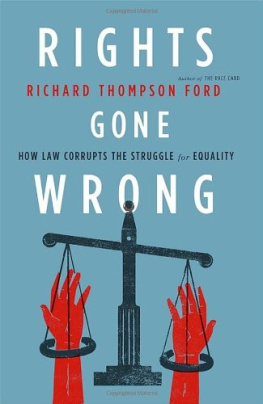A Kinder, Gentler Racism?

Stephen J. Wayne
Series Editor
Victory
How a Progressive Democratic Party Can Win and Govern
Arthur Sanders
The Politics of Justice
The Attorney General and the Making of Legal Policy
Cornell W. Clayton
A Kinder, Gentler Racism?
The Reagan-Bush Civil Rights Legacy
Steven A. Shull
First published 1993 by M.E. Sharpe
Reissued 2018 by Routledge
2 Park Square, Milton Park, Abingdon, Oxon OX14 4RN
711 Third Avenue, New York, NY 10017, USA
Routledge is an imprint of the Taylor & Francis Group, an informa business
Copyright 1993 by Taylor & Francis
No part of this book may be reprinted or reproduced or utilised in any form or by any electronic, mechanical, or other means, now known or hereafter invented, including photocopying and recording, or in any information storage or retrieval system, without permission in writing from the publishers.
Notices
No responsibility is assumed by the publisher for any injury and/or damage to persons or property as a matter of products liability, negligence or otherwise, or from any use of operation of any methods, products, instructions or ideas contained in the material herein.
Practitioners and researchers must always rely on their own experience and knowledge in evaluating and using any information, methods, compounds, or experiments described herein. In using such information or methods they should be mindful of their own safety and the safety of others, including parties for whom they have a professional responsibility.
Product or corporate names may be trademarks or registered trademarks, and are used only for identification and explanation without intent to infringe.
Publishers Note
The publisher has gone to great lengths to ensure the quality of this reprint but points out that some imperfections in the original copies may be apparent.
Disclaimer
The publisher has made every effort to trace copyright holders and welcomes correspondence from those they have been unable to contact.
A Library of Congress record exists under LC control number: 93002785
ISBN 13: 978-1-138-89692-5 (hbk)
ISBN 13: 978-1-315-17900-1 (ebk)
To my wife, Janice, and children, Amanda and Ted. I also dedicate this book to my parents, Arthur and Mildred Shull.
Contents
by Stephen J. Wayne
One of the tests to which we subject our presidents concerns their capacity to lead, their ability to achieve their political and policy goals. This is the test of whether presidents make a difference to their institution, their government, and their country.
Professor Steven A. Shull applies this test to Presidents Ronald Reagan and George Bush. His focus is on their civil rights policies, not only in theory and rhetoric, but also in practice. Shull examines this area of public policy as a measure of presidential leadership and substantive policy change. His objective is to document how two conservative presidents confronted and confounded a policy they opposed: the primacy of the national government in ensuring social and economic equity, particularly among minorities and women.
Using a stimulus-response model set within the context of the public policy process, Shull examines three discrete issues of civil rights policy: school desegregation, equal employment, and fair housing. Although he documents presidential involvement at each stage of the policy making and policy implementation processes, he shows that presidential influence is greatest in setting the agenda, refining the debate, and recasting specific policy goals. The more people that are involved at subsequent points in the processes and the longer the time frame, particularly if it extends toward the end of a presidents term and beyond, the more apt presidential influence is to decline.
Shulls principal contribution in this study is to demonstrate that presidents can and do make a difference and to indicate how that difference can be achieved. Second, he notes the limits of presidential power by his comprehensive description of policy processes and of the roles others play inside and outside government that affect the final outcome. Third, in his discussion of an important and controversial policy area, he indicates that nothing is immutable. Presidents can change the public debate and affect public policy, but these changes are not cast in stone. As Reagan and Bush could revamp civil rights policy and restructure the national governments role in that policy, so too can subsequent presidents revamp and restructure it anew, which is precisely what we would expect the Clinton administration to do.
Shulls study is an important book for anyone who wishes to understand the exercise of power by presidents in the formulation and implementation of policy process. He helps us to appreciate the discretion and constraints presidents have and the policy impact they can achieve if successful.
Stephen J. Wayne
Georgetown University
A Kinder, Gentler Racism? The Reagan-Bush Civil Rights Legacy posits that Ronald Reagan returned civil rights to a place of prominence on the national agenda but did so by attempting to cut back on federal protections. He made many statements and initiated many actions that had long-lasting policy results. Did George Bush simply maintain that legacy, or did he pursue the kinder and gentler policies of most of his predecessors? The evidence suggests the former. Despite early high support from minorities, Bush continuedperhaps expandedthe Reagan retrenchment from previous federal protections. Leadership from these two ideological conservatives led to substantial changes in civil rights policy. This book compares Reagan and Bush with other recent presidents (including, where appropriate, Bill Clinton); its primary theme is that presidential influence leads to policy change.
The book is organized according to a stimulus-response model not unlike the process of making public policy itself. )? My ultimate aim is to assess the impact of statements, actions, and results.
A Kinder, Gentler Racism? is an up-to-date treatment of how modem presidents making policy interact with others inside and outside government. The book incorporates empirical datain a fashion appropriate ).
Using case studies can help develop theory and build knowledge. The cases illustrate whether the policy resulted in conflict and stalemate or cooperation and success. Considerable attention near the books end is given to policy impact. Using case analysis and a stimulus-response model in tandem help us understand the presidents role in civil rights policy change.
This book is envisioned as a supplemental text for presidency and public policy courses and for advanced American government courses, particularly those taught by faculty incorporating a public policy perspective.
I received assistance from numerous sources for this project. First, I would like to thank Greenwood Press for allowing me to use portions of my 1989 monograph, The President and Civil Rights Policy. Graduate students Sheng Chen, Stephen Meinhold, Kerry Ordes, and Colleen Walligora helped in data collection and read parts of the manuscript. Former graduate student Albert Ringelstein collected the data for and commented on its contents. Several friends and colleagues, including Christine Day, Randall Ripley, Mark Stem, Joseph Stewart, Jr., and my wife, Janice Shull, gave me useful comments on draft chapters. The College of Liberal Arts at the University of New Orleans provided research funds for software and reference books. The universitys Office for Research awarded me a coveted research professorship that allowed me valuable released time and travel funds. The Department of Political Science assisted in printing and photocopying the manuscript. Finally, the professionals associated with M.E. Sharpe, Inc., provided me with invaluable assistance. Political scientists and series editors Kenneth Meier and Stephen Wayne both made helpful comments about the book. Michael Weber, the companys political science editor, supported this project from the beginning and guided its progress.


